Cancer Research UK Annual Review 2011/12
Cancer Research UK Annual Review 2011/12
Cancer Research UK Annual Review 2011/12
You also want an ePaper? Increase the reach of your titles
YUMPU automatically turns print PDFs into web optimized ePapers that Google loves.
<strong>Annual</strong> <strong>Review</strong> <strong>2011</strong>/<strong>12</strong> | 31<br />
I was surprised to find out I had Barrett’s<br />
oesophagus. Why does it go undiagnosed<br />
so often<br />
The most common symptom for Barrett’s<br />
oesophagus is persistent heartburn or indigestion,<br />
and people often go to the chemist rather than<br />
their GP for that. Most people who have these<br />
symptoms don’t have Barrett’s oesophagus,<br />
but many with the condition go undiagnosed<br />
and are not being monitored for signs of cancer.<br />
We need a screening test that can be done<br />
quickly and cheaply.<br />
If we can<br />
detect Barrett’s<br />
oesophagus<br />
earlier we could<br />
help prevent<br />
more cases<br />
of oesophageal<br />
cancer.<br />
Dr Rebecca Fitzgerald<br />
Why is this research so important<br />
Oesophageal cancer tends to be diagnosed<br />
when people go to the GP to say they have<br />
difficulty swallowing food. By then it’s usually<br />
quite advanced and very hard to treat. If you can<br />
diagnose it early, it transforms from something<br />
that requires major treatment to something that<br />
can be dealt with at an outpatient endoscopy<br />
appointment and has a very high cure rate.<br />
What’s the next step for your research<br />
We’ve completed one trial and another one is<br />
under way. Our plan is to take the Cytosponge<br />
test to the national screening committee to see<br />
if they’ll roll it out across the <strong>UK</strong>. I’d like to see<br />
it become part of a screening programme, like<br />
the ones we have for bowel and cervical cancer.<br />
Barrett’s oesophagus<br />
affects around<br />
one in 100 people<br />
in the <strong>UK</strong>. It leads<br />
to changes in<br />
the cells lining a<br />
person’s oesophagus,<br />
usually as a result<br />
of recurring acid<br />
reflux or heartburn.<br />
In a very small<br />
number of cases<br />
these changes can<br />
develop into cancer.<br />
cancerresearchuk.org


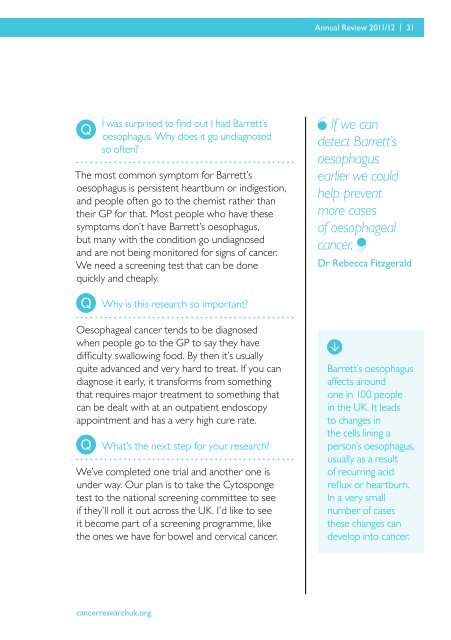

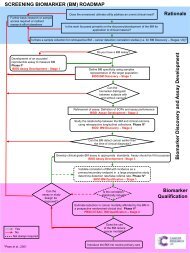
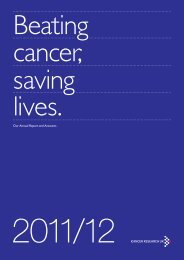
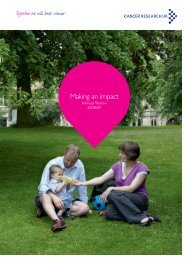
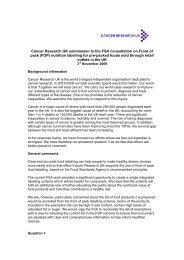
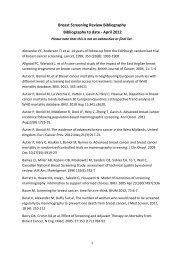
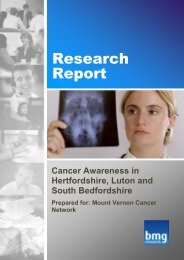
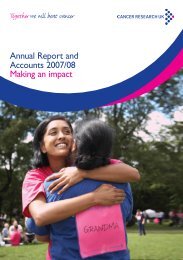


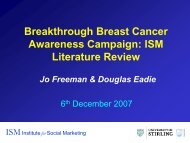
![[PDF] Cancer Research UK's strategy 2009 - 2014](https://img.yumpu.com/29239422/1/184x260/pdf-cancer-research-uks-strategy-2009-2014.jpg?quality=85)

